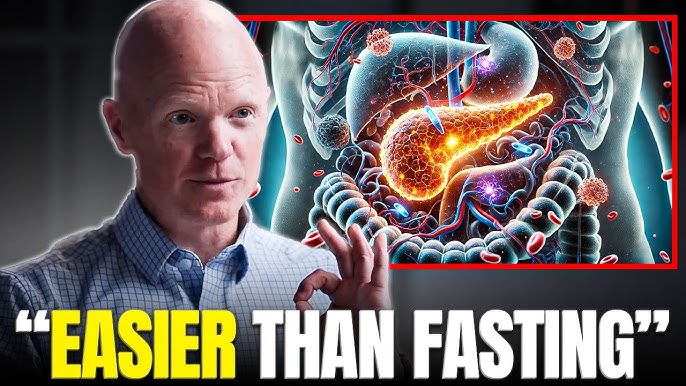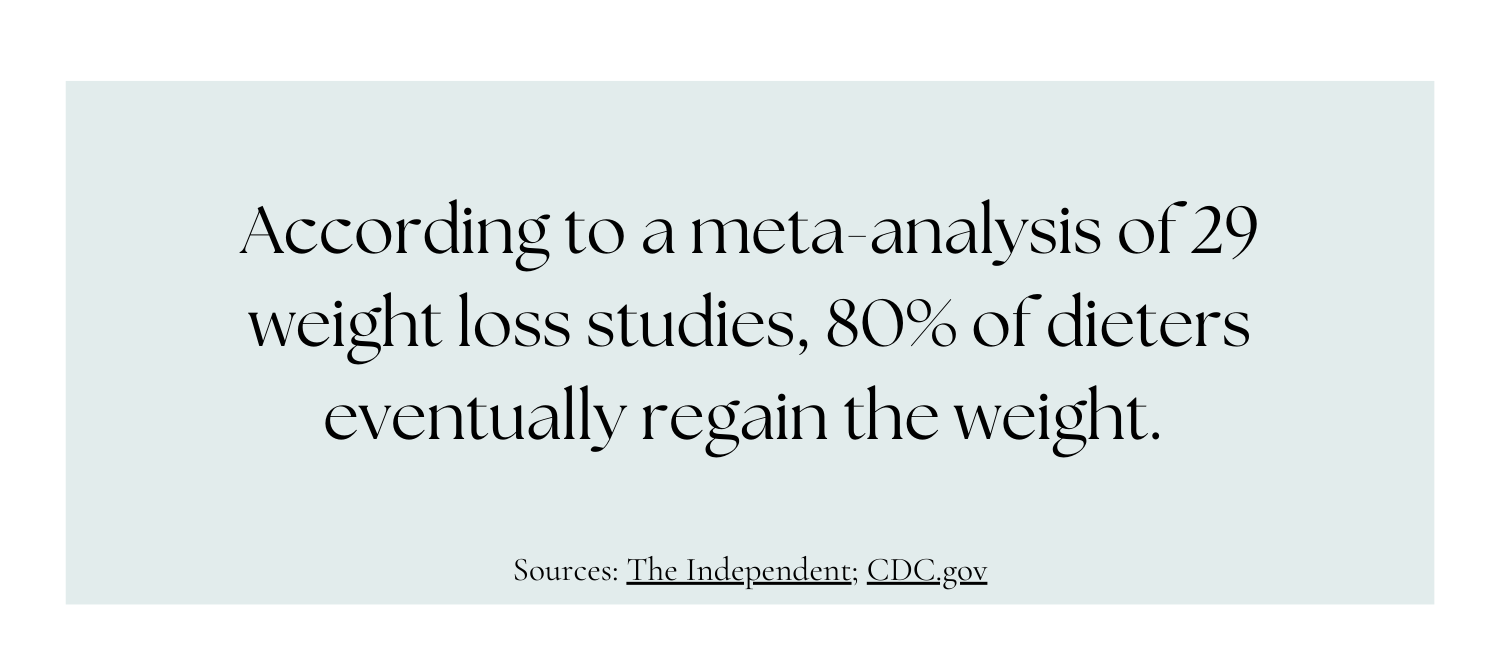Have you ever tried a crash diet hoping to shed pounds fast, only to end up feeling frustrated and stuck? You’re not alone.
Crash diets promise quick results, but they often leave you battling hunger, low energy, and disappointment. If you want to understand why these diets rarely work in the long run—and what you can do instead—keep reading. This article will reveal the hidden reasons behind crash diet failures and help you take control of your weight loss journey for good.
Crash Diets And Their Appeal
Crash diets promise fast weight loss by cutting calories drastically. Many people try them to lose weight quickly.
These diets often sound simple and show quick results. This makes them very tempting to those who want to change fast.
Quick Results Temptation
Crash diets promise fast weight loss, which is very appealing. People want to see changes quickly.
Fast results make people feel motivated at first. They think they can keep losing weight easily.
Common Methods Used
Crash diets often cut calories very low. They may remove whole food groups or rely on liquids only.
- Eating less than 800 calories a day
- Skipping meals or eating only one type of food
- Using diet pills or detox teas
- Fasting for long hours
Psychological Triggers
Crash diets play on emotions like fear and hope. People want to avoid failure and feel success fast.
Seeing quick weight loss can create a false sense of control. This makes people ignore long-term problems.
- Fear of gaining weight back
- Desire for quick approval from others
- Impatience with slow progress
- Belief in easy fixes

Metabolic Impact Of Crash Diets
Crash diets involve eating very few calories for a short time. People often try them to lose weight fast.
These diets affect the body’s metabolism in several ways. Understanding these effects helps explain why crash diets often fail.
Slowed Metabolism Effects
When you eat very little, your body slows down metabolism. This means it burns fewer calories to save energy.
A slower metabolism makes it harder to lose weight and easier to gain it back after the diet ends.
Muscle Loss Consequences
Crash diets often cause the body to break down muscle for energy. Losing muscle lowers your metabolism further.
Less muscle means the body burns fewer calories even at rest, making weight loss harder to keep.
Energy Deficiency Issues
Eating too little causes low energy levels. Your body does not get enough fuel to work properly.
Low energy can lead to tiredness, poor focus, and less physical activity. This reduces calorie burning further.
Nutritional Deficiencies
Crash diets often cut calories drastically. This causes a lack of important nutrients.
Without enough nutrients, the body cannot work well. This leads to many health problems.
Essential Nutrients Missed
Crash diets usually miss key vitamins and minerals. This harms the body’s normal functions.
Important nutrients often missed include iron, calcium, and vitamin B12. These support blood, bones, and energy.
- Iron helps carry oxygen in the blood.
- Calcium is needed for strong bones and teeth.
- Vitamin B12 supports nerve health and energy.
- Vitamin D helps absorb calcium and boost immunity.
- Protein is essential for muscle repair and growth.
Long-term Health Risks
Missing nutrients for a long time causes serious health issues. These risks grow over time.
Bone loss, anemia, and muscle weakness are common problems. These make daily life harder and less active.
- Osteoporosis from low calcium and vitamin D.
- Anemia from iron and vitamin B12 deficiency.
- Muscle loss due to lack of protein.
- Fatigue and weakness from missing energy nutrients.
Impact On Immune System
Crash diets weaken the immune system. The body cannot fight infections well.
Deficiencies in vitamins A, C, and zinc lower immune defenses. This causes more sickness and slow recovery.
- Vitamin A supports skin and mucous barriers.
- Vitamin C helps produce immune cells.
- Zinc aids wound healing and immune response.
- Protein is needed to build antibodies.

Behavioral And Psychological Factors
Crash diets often fail because of how they affect our behavior and mind. These diets are very strict and hard to keep up.
When people try crash diets, they may face strong feelings that make it hard to stick to the plan. This affects weight loss results.
Binge Eating And Cravings
Crash diets limit many foods, which can cause strong cravings. People often feel very hungry and want to eat a lot at once.
Binge eating happens when people eat large amounts of food quickly. This can undo the calories saved during the diet.
- Strict rules increase desire for forbidden foods
- Binge eating brings short-term relief but long-term weight gain
- Cravings grow stronger with long food restrictions
Mental Stress And Fatigue
Crash diets can cause mental stress because they ask for big changes fast. This stress makes the diet feel harder.
Fatigue from low energy intake can lower motivation. People feel tired and less able to keep up healthy habits.
- Stress reduces willpower
- Fatigue causes poor focus on diet goals
- Mental pressure can lead to quitting the diet
Yo-yo Dieting Cycle
Crash diets often cause yo-yo dieting. This means losing weight fast, then gaining it back quickly.
This cycle harms both the body and mind. It makes it harder to lose weight in the future.
- Rapid weight loss is hard to maintain
- Weight regain lowers self-confidence
- Repeating the cycle can cause frustration
Sustainability Challenges
Crash diets often fail because they are hard to keep up over time. These diets require strict rules that many find too tough to follow. This makes it difficult to stick with the plan long enough to lose weight.
Keeping weight off needs changes that fit into daily life. Crash diets usually do not help people build lasting habits. This causes people to go back to old eating patterns after dieting.
Difficulty Maintaining Restrictions
Crash diets often limit many foods or calories. These strict limits make people feel hungry or deprived. Over time, this leads to giving up the diet.
People find it hard to say no to favorite foods or snacks. The strict rules can cause stress and frustration. This makes it less likely to keep following the diet.
- Very low calories cause hunger and tiredness
- Cutting out whole food groups reduces variety
- Strict meal plans leave little room for flexibility
- Feeling deprived increases chances of overeating later
Lack Of Lifestyle Integration
Crash diets focus on quick weight loss, not lifestyle changes. They do not teach how to eat healthily every day. This makes it hard to keep results after the diet ends.
To maintain weight loss, people need habits they can follow for life. Crash diets do not build these habits. This causes weight to return once normal eating resumes.
- No guidance on balanced, lasting nutrition
- Does not encourage regular physical activity
- Fails to address emotional eating habits
- Focuses only on short-term goals
Social And Environmental Triggers
People’s eating is influenced by friends, family, and surroundings. Crash diets ignore these social and environmental factors. This makes sticking to the diet harder in daily life.
Events, parties, and stress can lead to breaking diet rules. Without tools to handle these triggers, diets often fail. Support from others and a healthy environment help maintain changes.
- Social events often involve tempting foods
- Stress can cause emotional eating
- Lack of support from family or friends
- Easy access to unhealthy foods at home or work
Effective Alternatives To Crash Diets
Crash diets often promise quick weight loss but fail to keep the weight off. These diets can cause fatigue and nutrient shortages.
Choosing safer and more lasting methods helps you stay healthy and maintain your weight over time.
Balanced Nutrition Plans
Eating a variety of foods gives your body the nutrients it needs. Balanced plans include fruits, vegetables, proteins, and whole grains.
These plans avoid cutting out entire food groups and help keep energy levels steady throughout the day.
- Include colorful fruits and vegetables
- Choose lean proteins like chicken or beans
- Pick whole grains instead of refined ones
- Limit added sugars and unhealthy fats
Gradual Lifestyle Changes
Small changes to your daily routine are easier to keep up. This way, you build good habits that last a long time.
Try to improve your eating and activity step by step instead of making big changes all at once.
- Eat smaller portions slowly
- Drink more water each day
- Sleep at least 7-8 hours regularly
- Reduce fast food and snacks gradually
Incorporating Physical Activity
Exercise helps burn calories and improves heart health. Moving your body daily supports weight loss and mood.
You can start with simple activities and increase the time and intensity slowly to avoid injuries.
- Walk for 30 minutes most days
- Try light stretching or yoga
- Use stairs instead of elevators
- Find a fun sport or group activity

Frequently Asked Questions
Why Do Crash Diets Cause Rapid Weight Regain?
Crash diets often lead to muscle loss and slower metabolism. When normal eating resumes, the body stores fat quickly, causing weight regain. This cycle makes long-term weight loss difficult and unsustainable.
How Do Crash Diets Affect Metabolism?
Crash diets reduce calorie intake drastically, which slows down metabolism. A slower metabolism burns fewer calories, making weight loss harder and promoting fat storage once normal eating returns.
Are Crash Diets Harmful To Health?
Yes, crash diets can cause nutrient deficiencies, fatigue, and muscle loss. They also increase the risk of gallstones, heart problems, and mental stress due to extreme calorie restriction.
Why Is Sustainable Weight Loss Better Than Crash Dieting?
Sustainable weight loss encourages healthy eating and regular exercise. It preserves muscle mass, boosts metabolism, and promotes long-term fat loss. This approach prevents yo-yo dieting and supports overall health.
Conclusion
Crash diets offer quick fixes but fail in the long run. They often lead to muscle loss and slow metabolism. People usually regain weight after stopping the diet. Long-term health can suffer from nutrient shortages. Sustainable weight loss comes from balanced eating and regular exercise.
Focus on lifestyle changes for lasting results. Listen to your body and eat mindfully. Avoid extreme diets and seek professional advice. Gradual changes make weight loss more achievable. Patience and consistency are key. Choose health over speed. Your body will thank you in the end.




